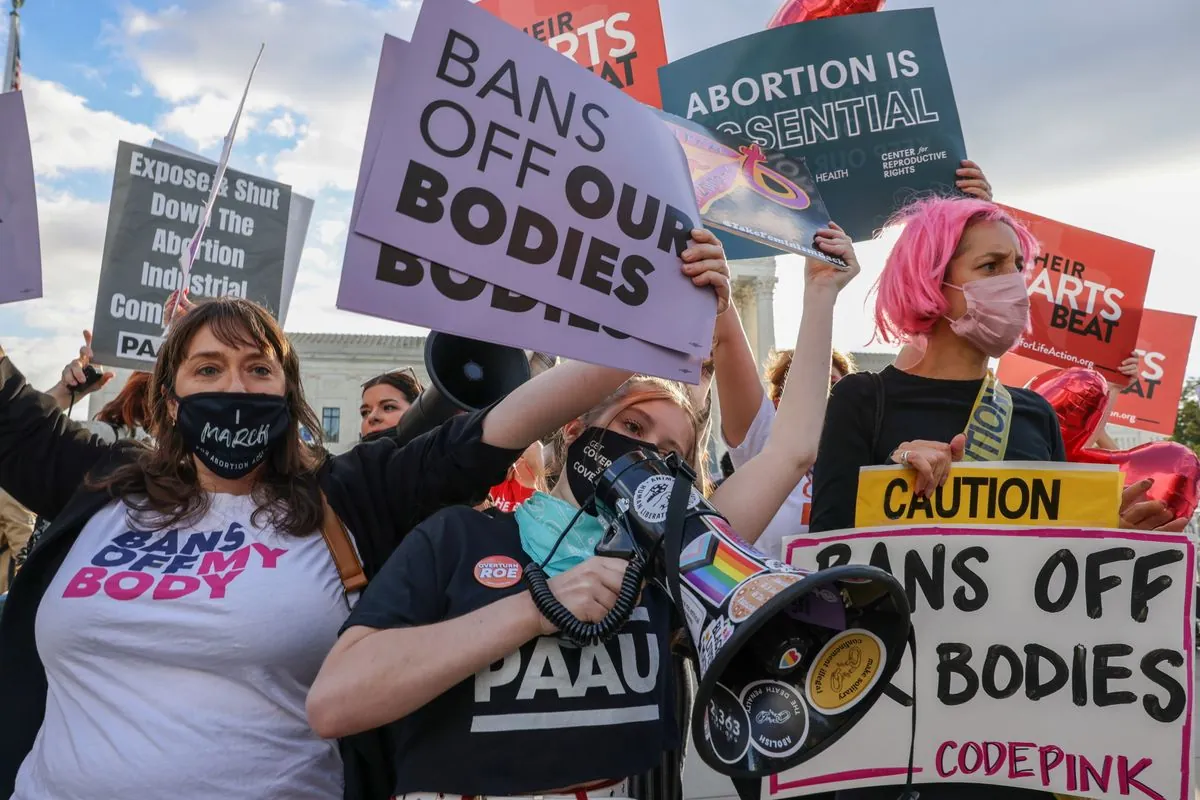Voters in 9 states to decide on abortion rights next month
Next month‚ nine states will vote on abortion rights amendments. While approval wont bring immediate changes‚ it could lead to more legal battles. Some states already have wide access‚ while others face complex implementation challenges

Next month voters in nine states will decide whether to add abortion rights to their constitutions However‚ these measures arent likely to bring big changes right away
Instead‚ if approved theyll probably start more court cases on a topic thats been in the legal system a lot – especially since the Supreme Court overturned Roe v Wade about two years ago In some places where its on the ballot‚ abortion is already easy to get
In Missouri‚ if the amendment passes and starts in december it wont get rid of the states total ban or other rules (like a 72-hour waiting time and a 44-inch doorway rule for clinics) that made Planned Parenthood stop abortions in two offices years before Roe was overturned
A yes vote for this is not a vote to overturn anything It is a vote to ensure that the courts will have to fight this out for a long time
Coleman who is also a conservative law expert said the GOP-led legislature could also ask voters to undo the amendment if it passes

Still‚ the measure would mean “the wind will be at our back“ in court fights to overturn limits said Emily Wales‚ the head of Planned Parenthood Great Plains which works in four states and is the only group in recent years to provide abortions in Missouri They stopped completely just before Roe was overturned
Theres some history of an amendment not fixing everything right away An Ohio measure passed last year mostly undid a law that banned abortion after cardiac activity can be found‚ at about six weeks and before women often know theyre pregnant Enforcement had already been stopped by a court Ohio advocates have been winning in early court fights against other rules but those battles arent over yet‚ and they worry lawmakers will block the use of taxpayer funds to support access
The biggest state with an abortion ballot measure this year is Florida It would need 60% of voters to approve And Ron DeSantisʼs administration has said there was fraud in the signature-gathering process that got it on the ballot That could be the reason for a court challenge on whether the amendment would start on jan 7 Meanwhile‚ the measures supporters are suing current and former state health department officials over their efforts to get TV stations to stop running one pro-amendment ad
In Colorado Maryland and New York – where the measure doesnt say “abortion“ specifically but bans discrimination based on “pregnancy outcomes“ – abortion is already allowed at least until viability – generally thought to be after 20 weeks‚ with some exceptions
Colorados measure would also get rid of a ban on using taxpayer funds for abortion A new law would be needed for abortion to be added to health insurance for government workers and people with Medicaid coverage
To take effect‚ an amendment would need not only majority support‚ but more votes than the other measure
In South Dakota where abortion is banned throughout pregnancy‚ opponents and supporters have been fighting over a measure that would stop the state from regulating abortion in the first trimester and allow rules for the second and third trimesters only under certain health circumstances
If the measure is adopted and survives the challenge it would start july 1 2025
Life Defense Fund is focused on its campaign to defeat the measure at the ballot box rather than what might come next said group spokesperson Caroline Woods
Dakotans for Health sponsored the amendment and expects the GOP-led legislature to try to “thread that needle“ and impose limits during the second trimester if the amendment passes said group cofounder Rick Weiland
And that would probably mean more lawsuits
“This is an issue thats never going to go away“ Weiland said


































